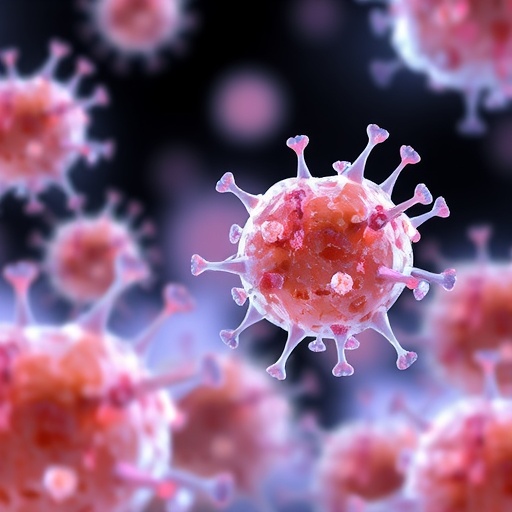The intricate workings of the human immune system have long posed a challenge for scientists, particularly in terms of how it distinguishes between harmful invaders, such as viruses, and benign entities, such as food proteins. This selective response is crucial; if the immune system reacts indiscriminately, the result can be detrimental, leading to conditions like allergies. Recent findings from researchers at NYU Langone Health have illuminated one crucial aspect of this process, uncovering the role played by a unique group of cells in the intestines, known as tolerogenic dendritic cells. These specialized cells are pivotal in the immune system’s ability to tolerate the presence of food proteins without mounting an inappropriate immune response.
Traditionally, the immune system functions by recognizing foreign substances through a process involving dendritic cells that present antigens to T cells, triggering an inflammatory response aimed at eliminating perceived threats. However, the newly identified tolerogenic dendritic cells take on an entirely different role. Instead of inciting an attack, they promote immune tolerance by allowing the passage of food proteins without activating inflammatory pathways. This groundbreaking discovery suggests that ensuring the functionality of these cells is critical to maintaining a balanced immune system and preventing allergic reactions.
The study revealed that the effectiveness of tolerogenic dendritic cells hinges on specific proteins, namely Retinoic Acid-Related Orphan Receptor-gamma-t (RORγt) and PR domain-containing 16 (Prdm16). These proteins are integral to the cells’ ability to regulate immune responses to food proteins. The researchers discovered that when these dendritic cells operated normally, they were able to prevent harmful inflammatory responses not only to food but also to beneficial gut bacteria. In experiments involving genetically altered mice lacking these cells, researchers observed a marked increase in the incidence of food allergies and asthma, underscoring the critical nature of these immune players in promoting tolerance.
Prior investigations by the same research group had already suggested the role of tolerogenic dendritic cells in managing interactions with helpful gut microbiota. However, the specific mechanisms and broader implications of how these cells contribute to immune homeostasis were less understood. The current study expands on this foundational work by clarifying the identity of these cells and demonstrating their role in preventing allergic responses, thus providing a more comprehensive understanding of the immune landscape in the intestinal milieu.
The significance of this study lies not only in its contributions to our understanding of food allergies but also in the implications for treating such conditions. Researchers postulate that manipulating tolerogenic dendritic cells could lead to novel therapeutic interventions. For instance, in patients with peanut allergies, an approach that enhances the activity of these cells may foster the development of regulatory T cells capable of overriding allergic responses. Such innovative strategies could pave the way for the future of allergen immunotherapy, presenting a promising avenue for clinical application.
Moreover, the analysis of human intestinal tissue revealed the presence of the human equivalents of these dendritic cells, though further investigation is necessary to determine their prevalence and specific functions in the human body. This calls for ongoing research into the developmental pathways and environmental signals that influence the maturation of tolerogenic dendritic cells, as a deeper understanding could yield new insights into the prevention and management of autoimmune diseases and allergies.
The researchers also noted that their findings have far-reaching implications beyond just allergies. Understanding the mechanisms of immune tolerance controlled by tolerogenic dendritic cells could potentially inform treatments for a variety of autoimmune disorders, such as Crohn’s disease. The ability of these cells to maintain a peaceful coexistence with the gut microbiome presents an exciting intersection of immunology and microbiology, fostering an appreciation for the delicate balance of health maintained within the human body.
As the scientific community continues to explore the complex dynamics of the immune system, the elucidation of the role of tolerogenic dendritic cells represents a pivotal expansion of knowledge. With the ongoing support of funding from the National Institutes of Health, the researchers aim to delve deeper into the intricacies of these immune regulators and their potential therapeutic applications.
The advances in understanding immune tolerance could reshape clinical approaches to allergies and autoimmune diseases. As these discoveries become more articulated in future research, they are likely to inspire innovative strategies to harness the power of the immune system for therapeutic benefits. This holistic perspective on the immune system, especially focusing on tolerance rather than mere defense, suggests a paradigm shift in how we approach immunological health.
The implications of this research reach far beyond theoretical curiosity; they offer tangible possibilities for enhancing human health. Future therapeutic interventions might leverage the inherent mechanisms of immune tolerance facilitated by tolerogenic dendritic cells, thus filling a crucial gap in our current healthcare framework. As scientists build on this foundation, the overarching goal remains: to provide new hope for individuals afflicted by allergies, autoimmune diseases, and various other immune-mediated disorders.
As this area of research progresses, it showcases the interconnectedness of various biological systems within the body. The conversation surrounding immune health, particularly in the context of food tolerance, is evolving, and it appears that the key to such interactions may lie in understanding and enhancing the role of these specialized immune cells.
By further investigating the functions and interactions of tolerogenic dendritic cells, researchers can chart new territories in the field of immunology, contributing to a more nuanced understanding of health and disease.
Subject of Research: Animals
Article Title: Prdm16-dependent antigen-presenting cells induce tolerance to gut antigens
News Publication Date: 14-Apr-2025
Web References: https://www.nature.com/articles/s41586-025-08982-4
References: 10.1038/s41586-025-08982-4
Image Credits: Not specified
Keywords: Allergic reactions




